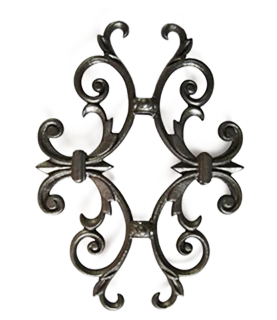Replacement Options for Aluminium Sliding Door Rollers and Maintenance Tips
A Comprehensive Guide to Replacing Aluminium Sliding Door Rollers
Aluminium sliding doors are a popular choice for many homeowners due to their sleek design, durability, and ability to enhance natural light in a space. However, like any mechanical system, the rollers on these doors can wear out over time, leading to frustrating issues such as difficulty opening or closing the door. Replacing the rollers can significantly improve the functionality of your sliding door, making it glide smoothly once more. In this article, we’ll discuss how to identify issues, select the right replacement rollers, and provide a step-by-step guide for DIY replacement.
Identifying Roller Issues
The first step in addressing any problem with your sliding door is to identify the root cause. Common signs that your aluminium sliding door rollers may need replacing include
1. Resistance If your door feels heavy and is difficult to slide, the rollers are likely worn. 2. Sticking or Jumping If the door seems to jump or stick at certain points, this may indicate that the rollers are out of alignment or damaged. 3. Noise Unusual sounds such as squeaking or grinding when opening or closing the door can signal roller issues. 4. Visual Inspection Check the rollers visually for any signs of wear such as rust, cracks, or chips.
If you notice any of these issues, it’s time to consider replacing the rollers.
Selecting the Right Replacement Rollers
Choosing the right rollers for your aluminium sliding door is crucial for a successful replacement. Here are some tips
1. Measure the Existing Rollers Remove the old rollers to get accurate measurements, including diameter and width. This will help you find a suitable replacement. 2. Check Compatibility Not all rollers fit all doors. Make sure to check product specifications and, if possible, consult the manufacturer of your sliding door for recommended rollers.
3. Material Quality Opt for high-quality materials. Stainless steel or nylon rollers tend to be more durable than plastic options, which can wear out quickly.
4. Style and Size Ensure that you choose rollers that match the style of your door. There are various models available, including those with different wheel sizes and axle configurations.
aluminium sliding door rollers replacement

Step-by-Step Replacement Process
Replacing your aluminium sliding door rollers is a manageable DIY project that can save you money
. Here’s a concise guide to help you through the processTools Needed - Screwdriver - Pliers - Replacement rollers - Level - Cleaning cloth
1. Remove the Door - Start by lifting the sliding door off the track. This might require tilting the door towards you at the bottom to disengage it from the rollers.
2. Remove Old Rollers - Once the door is off, use a screwdriver to remove the screws holding the old rollers in place. Dispose of them safely.
3. Install New Rollers - Position the new rollers into the same locations as the old ones. Secure them with screws, ensuring they are tightly fastened but not overtightened to avoid damage.
4. Reinstall the Door - With the new rollers in place, lift the door back onto the track. Carefully adjust the door to make sure it is level and aligned correctly within the frame.
5. Test the Door - Open and close the door several times to ensure it glides smoothly. Check if further adjustments are needed.
6. Clean Up - Give the track a good cleaning to remove any debris that could affect the door’s movement. A clean track will enhance the longevity of your new rollers.
Conclusion
Replacing aluminium sliding door rollers is an uncomplicated task that rewards you with a fully functional door. By paying attention to signs of wear, selecting the right replacement parts, and following the installation instructions, you’ll have your sliding door operating like new in no time. Taking on this DIY project not only improves your home’s accessibility but also enhances its aesthetic appeal, making it a worthwhile investment for any homeowner.
-
Wrought Iron Components: Timeless Elegance and Structural StrengthNewsJul.28,2025
-
Window Hardware Essentials: Rollers, Handles, and Locking SolutionsNewsJul.28,2025
-
Small Agricultural Processing Machines: Corn Threshers, Cassava Chippers, Grain Peelers & Chaff CuttersNewsJul.28,2025
-
Sliding Rollers: Smooth, Silent, and Built to LastNewsJul.28,2025
-
Cast Iron Stoves: Timeless Heating with Modern EfficiencyNewsJul.28,2025
-
Cast Iron Pipe and Fitting: Durable, Fire-Resistant Solutions for Plumbing and DrainageNewsJul.28,2025
-
 Wrought Iron Components: Timeless Elegance and Structural StrengthJul-28-2025Wrought Iron Components: Timeless Elegance and Structural Strength
Wrought Iron Components: Timeless Elegance and Structural StrengthJul-28-2025Wrought Iron Components: Timeless Elegance and Structural Strength -
 Window Hardware Essentials: Rollers, Handles, and Locking SolutionsJul-28-2025Window Hardware Essentials: Rollers, Handles, and Locking Solutions
Window Hardware Essentials: Rollers, Handles, and Locking SolutionsJul-28-2025Window Hardware Essentials: Rollers, Handles, and Locking Solutions -
 Small Agricultural Processing Machines: Corn Threshers, Cassava Chippers, Grain Peelers & Chaff CuttersJul-28-2025Small Agricultural Processing Machines: Corn Threshers, Cassava Chippers, Grain Peelers & Chaff Cutters
Small Agricultural Processing Machines: Corn Threshers, Cassava Chippers, Grain Peelers & Chaff CuttersJul-28-2025Small Agricultural Processing Machines: Corn Threshers, Cassava Chippers, Grain Peelers & Chaff Cutters












